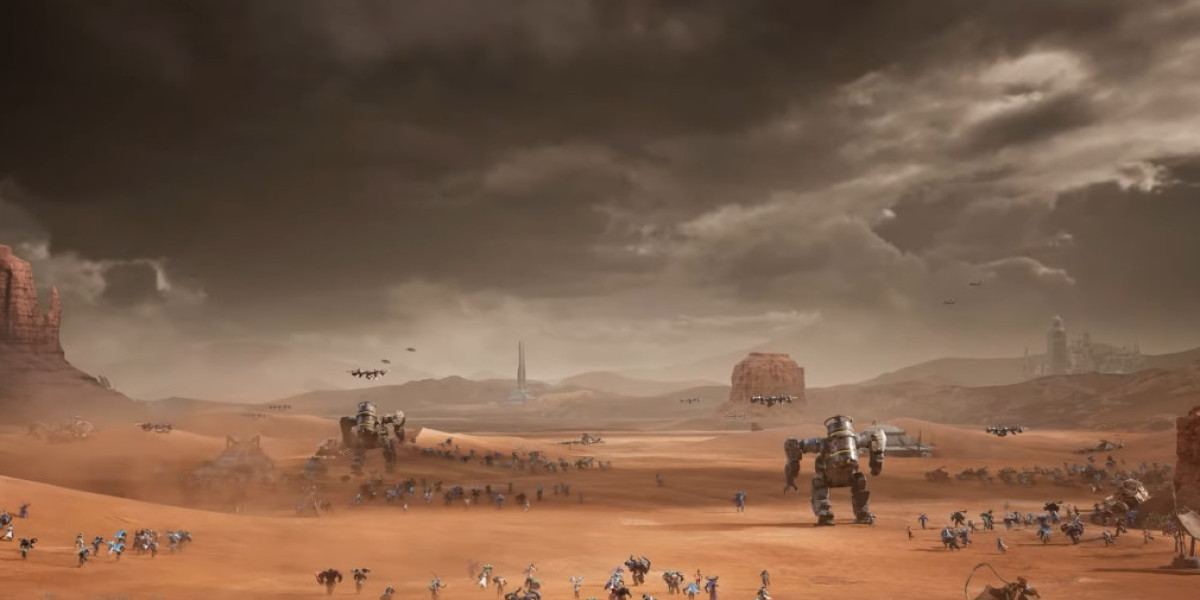In today’s gaming landscape, the phrase “massively multiplayer online role-playing game” (MMORPG) often provokes more skepticism than excitement. Once the crown jewel of PC gaming, the genre has, over time, become weighed down by its own conventions: bloated content, uninspired quest design, rigid class systems, and a creeping pay-to-win culture that drives a wedge between new players and long-time fans. Yet in the quiet corners of the industry—beyond the glitz of million-dollar trailers and hype-heavy showcases—a rare gem has begun to glimmer. That game is Warborne: Above Ashes (Warborne Above Ashes Solarbite).
Developed by indie studio Ironheart Dominion, Warborne: Above Ashes is not a reinvention of the MMORPG wheel, but a resurrection of its original promise—freedom, community, and immersive storytelling. Set in a world ravaged by cataclysm, where magic and machinery clash amid the ruins of empires, WAA is a game that dares to ask: what if we built an MMORPG around player agency again?
A World Reborn Through Fire
The backdrop of Warborne: Above Ashes is as evocative as it is devastating. Following a centuries-long conflict between the arcane Houses of Emberlight and the technocratic Dominion of Steel, the world of Aethralyn is shattered—literally. The Great Sundering, a magical-industrial catastrophe, has fractured the continents into skyborne shards hovering above a sea of fire and storm. From these floating isles, players emerge as survivors, exiles, and rebels, tasked with shaping what comes next.
This lore isn’t just window dressing. The fractured geography of Aethralyn fundamentally influences gameplay. Each shard-isle is procedurally generated, creating a mix of handcrafted storytelling hubs and dynamically evolving territories. Exploration feels fresh, dangerous, and rewarding—particularly because the environment itself responds to player actions. One faction’s overuse of fire-magic in a region might result in wildfires or scorched terrain; another’s mining operation may trigger a structural collapse, opening up new ruins or swallowing villages whole.
No More Holy Trinity: A Classless, Modular System
One of the most striking innovations in Warborne: Above Ashes is its complete rejection of the "Holy Trinity" (tank, healer, DPS) that defines so many MMOs. Instead, WAA uses a modular class system that allows players to build their characters from the ground up using "Essence Cores"—modular ability sets that can be equipped, combined, and evolved.
Want to be a lightning-wielding rogue who dashes between enemies and heals on critical strikes? That’s viable. Prefer a cannon-toting illusionist who can summon mirror clones and lay down suppressive fire? You can build that too. The system rewards experimentation and hybridization, without punishing players for deviating from meta-dictated roles.
More importantly, this structure supports meaningful progression. Instead of simply leveling up and unlocking linear abilities, players grow by mastering the mechanics they actually use, developing synergies through experience and situational adaptation. It feels personal and empowering in a way that grind-heavy trees seldom do.
Player-Driven Economies and Factions
In most MMORPGs, “faction” is a cosmetic checkbox or a narrative flourish. Not so in WAA. From the moment you step into the world, you're encouraged to either join an existing faction—or build your own. Each faction, be it a city-state, mercenary company, or mystical cult, operates as a player-driven political body. Leaders are voted in. Laws can be written. Economies can rise or collapse based on trade, taxation, and war.
Crafting and trade in Warborne form the backbone of the player economy, but unlike many games, WAA doesn’t segregate PvE crafters from PvP adventurers. Instead, blacksmiths may find themselves negotiating protection pacts with warbands, while alchemists trade rare brews to unlock faction-wide buffs. Towns built by players can rise into full-fledged cities—with defenses, markets, and even governance systems.
Of course, with freedom comes danger. Factions can go to war. Spies can infiltrate. Trade routes can be sabotaged or taxed. This creates an emergent, player-authored sandbox where diplomacy and deception are just as viable as brute force.
Combat That Demands Engagement
Combat in Warborne: Above Ashes is not the typical MMO fare of cooldown juggling and number watching. It’s fast-paced, weighty, and above all—skill-based. WAA uses an action-combat system closer to Dark Souls or Monster Hunter than to World of Warcraft. Dodging, parrying, timing, and positioning are critical.
But what truly elevates it is how environment and verticality play into the mix. Fighting on the edge of a sky island, where a misplaced dodge can send you plummeting to the inferno below, adds an edge of real consequence to battles. Elemental hazards—acid rains, lightning storms, unstable terrain—further deepen tactical decision-making.
Boss encounters are large-scale, multi-phase affairs that combine environmental manipulation, group coordination, and individual execution. This makes dungeons feel more like collaborative raids than mechanical checklist runs.
Narrative Through Consequence
While WAA has rich lore and dozens of storylines, it distinguishes itself through consequence. Quest outcomes aren’t just tracked—they change the world. Saving a village might mean its resources are diverted from your faction. Failing to prevent a siege could lead to that village being destroyed—permanently.
Players’ decisions aren’t isolated either. Global events are built to respond to community trends. If most players support arcane research, Aethralyn may slowly become more magically unstable. If tech-domination prevails, cities may rise—but so too may automatons that threaten all organic life.
This is dynamic world-building at its finest—one where player choice doesn’t just flavor the narrative but becomes it.
Monetization Without Exploitation
Perhaps the most quietly revolutionary aspect of Warborne: Above Ashes is its business model. In an era where most MMOs lean heavily on cash shops, loot boxes, or time-gating progression behind premium passes, WAA offers a different path.
It’s buy-to-play with optional cosmetic-only microtransactions. There are no stat boosts, no paid power advantages, and no lottery mechanics. Cosmetics are elaborate and themed, often crafted in collaboration with the community through art contests or lore-based contributions. This model has cultivated a loyal and respectful player base, not a divided one.
A Community Worth Joining
Great MMOs aren’t just games—they’re living, breathing communities. And WAA understands this. From its in-game forums and bulletin boards to faction council meetings and bard-run tavern performances, the game actively encourages interaction, storytelling, and player expression.
Roleplayers, PvPers, hardcore raiders, and casual traders all have space here. It’s a rare MMO that welcomes all playstyles without diluting the challenge or depth for any. And with dedicated modding tools and content creation kits in the works, Warborne is actively inviting players to help build the future of the game itself.
Final Thoughts: A New Standard?
Warborne: Above Ashes doesn’t try to out-muscle the AAA giants with graphics or budget. What it does, and does brilliantly, is bring heart and player agency back to a genre long thought stagnant. It understands that MMORPGs are about worlds you want to live in, not just systems you want to min-max.
With its deeply reactive world, player-shaped factions, modular combat, and transparent business model, WAA isn’t just another MMORPG—it’s a call to arms. A challenge to the industry to remember why we fell in love with online worlds in the first place buy Warborne Above Ashes Solarbite.
For those disillusioned with the genre, Warborne: Above Ashes is a spark of hope. For everyone else, it might just be the future.








